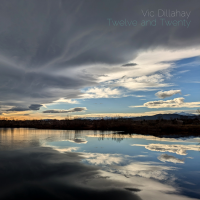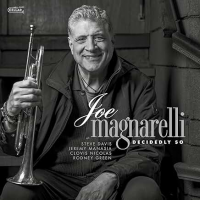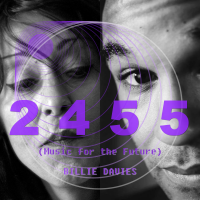Home » Jazz Articles » Multiple Reviews » Three Views From the Vanguard: Lovano, Moran & Solal
Three Views From the Vanguard: Lovano, Moran & Solal
 Now there are some folks who can listen to things like radio checks or snippets of solos caught on antiquated home recorders and still manage to get the musical message one hundred percent, but I would venture to say those individuals are few in number. In the case of On This Day at the Village Vanguard, the second live set by Joe Lovano to come from the legendary venue, engineer Kurt Lundvall has somehow managed a lifeless sound that would be akin to throwing a blanket over everything. In order words, the recording quality is dull and lifeless.
Now there are some folks who can listen to things like radio checks or snippets of solos caught on antiquated home recorders and still manage to get the musical message one hundred percent, but I would venture to say those individuals are few in number. In the case of On This Day at the Village Vanguard, the second live set by Joe Lovano to come from the legendary venue, engineer Kurt Lundvall has somehow managed a lifeless sound that would be akin to throwing a blanket over everything. In order words, the recording quality is dull and lifeless.
In what might be called a modern day update of Miles Davis' "Birth of the Cool" style, Lovano's tentet goes through some slick, but loose arrangements of a few originals, two bop-inflected numbers by Tadd Dameron, and the avant-tinged "On This Day (Just Like Any Other)", the latter being a 15-minute tour-de-force that eventually bogs down under its own weight and Lovano's meanderings. The best moments come from the most standard items, namely Lovano's own "At the Vanguard" and a choice romp through "Good Bait." But somehow an attempt to recreate the magic of Coltrane's "After the Rain" falls flat; the goose bumps just aren't there.
 Lundvall doesn't fare much better with The Bandwagon, the latest bit of updated trio explorations by pianist Jason Moran. The bass is way too prominent and boomy and it's even hard to distinguish whether or not Tarus Mateen is playing his acoustic or electric axe. As for the performance, much of Moran's work meanders in a way that is somewhat inconclusive and devoid of emotion. Things do not swing in a conventional manner for the most part with Andrew Hill immediately coming to mind as an influence, particularly on "Gangsterism on Stages." Jaki Byard is another obvious inspiration, with Moran even covering the iconoclast's "Out Front."
Lundvall doesn't fare much better with The Bandwagon, the latest bit of updated trio explorations by pianist Jason Moran. The bass is way too prominent and boomy and it's even hard to distinguish whether or not Tarus Mateen is playing his acoustic or electric axe. As for the performance, much of Moran's work meanders in a way that is somewhat inconclusive and devoid of emotion. Things do not swing in a conventional manner for the most part with Andrew Hill immediately coming to mind as an influence, particularly on "Gangsterism on Stages." Jaki Byard is another obvious inspiration, with Moran even covering the iconoclast's "Out Front."
These two pieces in fact are the most successful of the lot. Elsewhere things go too far south, some Turkish mumbling proving especially taxing on the nerves throughout "Ringing My Phone" and "Infospace." It's all somewhat of a mixed bag that will probably appeal to only those with truly adventurous tastes.
 First gaining some bit of prominence following the fanfare of a 1963 performance at Newport, little has really been heard from pianist Martial Solal since then. NY-1 Live at the Village Vanguard was recorded in the wake of New York's post 9/11 histrionics, although just recently released. There's somewhat of an improvement in the audio this time around provided by Mantis Evar, although in this case the bass is under-recorded and the drums are definitely too up front. Clocking in at fifteen minutes, a romp through "What Is This Thing Called Love" is a typical example of Solal's art, angular and full of space with a development that follows a stream of consciousness. Bill Stewart is really masterful throughout, responding to every hairpin twist and turn with the grace of a ballerina and the stamina of a long distance runner.
First gaining some bit of prominence following the fanfare of a 1963 performance at Newport, little has really been heard from pianist Martial Solal since then. NY-1 Live at the Village Vanguard was recorded in the wake of New York's post 9/11 histrionics, although just recently released. There's somewhat of an improvement in the audio this time around provided by Mantis Evar, although in this case the bass is under-recorded and the drums are definitely too up front. Clocking in at fifteen minutes, a romp through "What Is This Thing Called Love" is a typical example of Solal's art, angular and full of space with a development that follows a stream of consciousness. Bill Stewart is really masterful throughout, responding to every hairpin twist and turn with the grace of a ballerina and the stamina of a long distance runner.
There's also a very atonal and abstract quality to his opening of "Body and Soul" that puts Solal in a class outside of the mainstream. While certainly not quite as dramatic as Cecil Taylor, Solal nonetheless indulges in some wild forays that break up the normal flow of rhythm, balancing this with sections that swing in a more predictable manner. Again, it helps to have an exploratory spirit in appreciating Solal's art, as this is not your typical piano trio fare.
Tags
PREVIOUS / NEXT
Support All About Jazz
 All About Jazz has been a pillar of jazz since 1995, championing it as an art form and, more importantly, supporting the musicians who make it. Our enduring commitment has made "AAJ" one of the most culturally important websites of its kind, read by hundreds of thousands of fans, musicians and industry figures every month.
All About Jazz has been a pillar of jazz since 1995, championing it as an art form and, more importantly, supporting the musicians who make it. Our enduring commitment has made "AAJ" one of the most culturally important websites of its kind, read by hundreds of thousands of fans, musicians and industry figures every month.




















